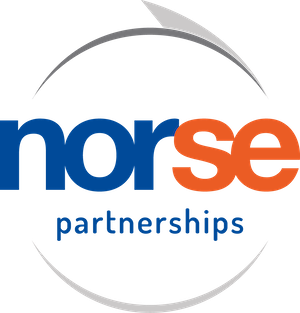Partnerships help with reforms
After months of uncertainty, the government has now announced the long-awaited plans to reform recycling in England. Under the new policies, by early 2026, most households will have a weekly food waste collection and there will be a standardised list of items that councils must recycle.
The proposals require English councils, with a few exceptions, to make a food waste collection every week. However, for many cash strapped councils, this represents a significant change in service provision with, of course, a consequential cost: currently around only half of English councils provide a separate food waste collection service.
Earlier this year, there was also speculation that the planned reforms would stipulate that households would need to separate their dry recycling. It was even hinted that a seven-bin policy was being considered – although common sense has prevailed and that idea was quickly quashed.
On the positive side, and to the relief of most local authorities, the announced reforms also confirmed that councils will continue to have the flexibility to choose whether to place all their dry recycling together or to separate it into, for example, glass, paper or metal. The Government’s reforms give councils the option to choose how many bins and bags they collect.
Environment secretary Therese Coffey re- affirmed this, saying: “Simpler recycling will help us all recycle more easily. Alongside weekly food waste collections, we are ending the postcode lottery of what you can put in your bin so that, wherever you live in the country, you will be able to recycle the same products with confidence.”
Supporting this confirmation, the District Councils’ Network’s environment spokesperson Sarah Nelmes said that “we can continue to rely on the local solutions which have increased recycling rates”.
There is now a list of items which all councils will have to recycle. It includes things such as aluminium foil and several types of plastic packaging. But how they will go about implementing these requirements and, more importantly, how it will be funded, remains unclear.
The new waste regulations undoubtedly present a particular challenge to councils. It is apparent that many, if not most, will have to change aspects of their collection regime, and those in contractual arrangements face protracted, and potentially costly, renegotiations with their providers.
In a traditionally outsourced arrangement, implementing service changes can be a problem and it often ends in variation charges which only add to the financial pressures that councils are under.
I know from my discussions with local government leaders that insourcing appears to be an attractive alternative, but there is a realisation that bringing services back in-house after many years of outsourcing can be extremely difficult, as council resources and the attendant expertise have been reduced to save money.
But there is an alternative service delivery model which has been adopted by many local authorities in the past few years: the public/ public joint venture partnership. This approach overcomes the difficulties inherent in traditional contract-based arrangements, and gives councils far greater control – similar to self delivery – while also providing cost-efficiency, high quality and a heavy emphasis on social value.
Working with a well-established local authority trading company (LATCo) such as Norse Group removes the need for a costly and time-consuming tender process because it makes use of existing procurement legislation which allows joint working between contracting authorities. Under a partnership agreement, the council holds shares in the joint venture company and has representation at board level, giving direct control over service delivery.
Any strategic changes and adjustments to working practices, such as those required by the new regulations, are far more easily agreed and executed with the flexibility offered by a joint venture, making it much more like insourcing than outsourcing. For those councils with a long-term ambition to deliver waste services in-house, such a partnership can act as a bridge to running their own LATCo, with the company ownership transferring at the end of the initial term.
When it comes to funding the changes at operational level, a trading company such as Norse brings proven commercial experience and cost efficiency on a par with the private sector; the ability to trade in the open market and generate additional revenue at minimal risk to the council; and the knowledge that profits are returned not to private shareholders, but to the public purse.


